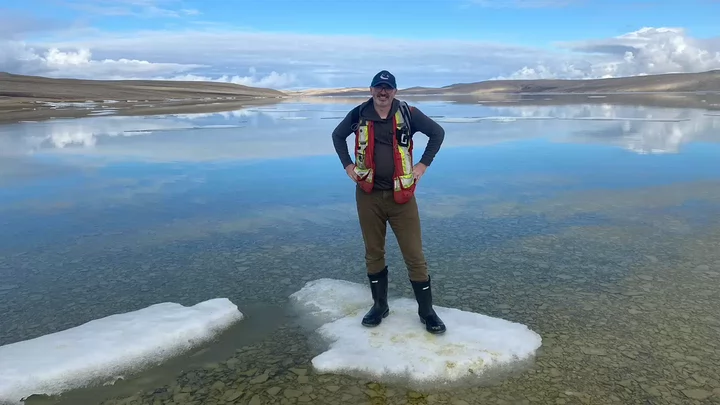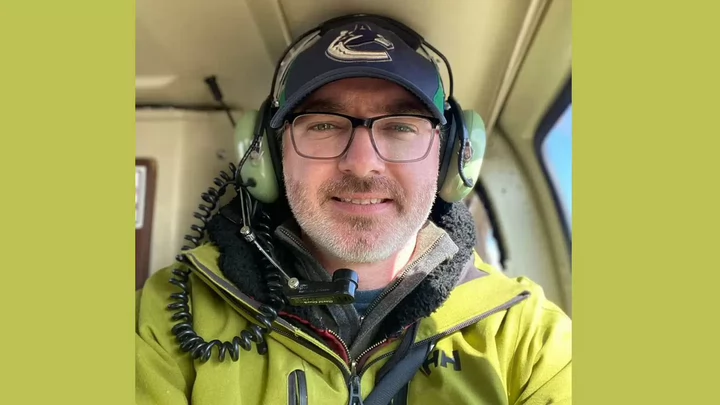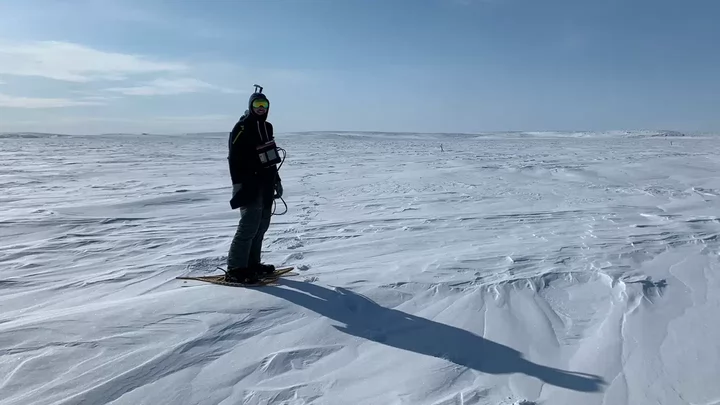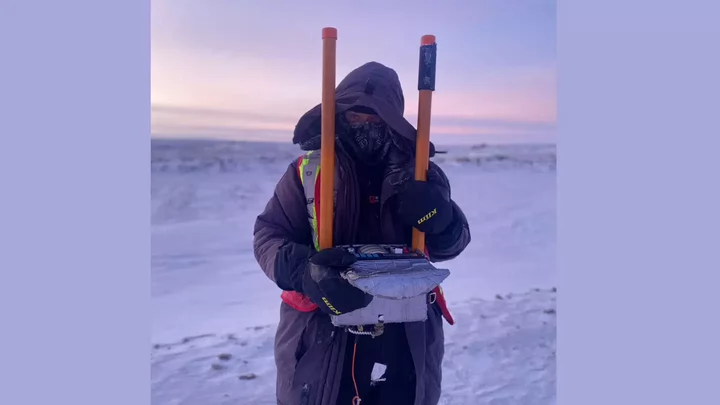The sounds of science
October 06, 2025

Geophysicist Jeffrey Zurek became hooked on Earth science, particularly the mysteries of volcanoes, as a child. Now, he shares his passion for discovery in a lively science podcast.
- Name: Jeffrey Zurek
- UVic degree: Bachelor of Science in Physics and Earth Sciences, 2007.
- Other degrees and accreditations: MSc and PhD from Simon Fraser University (SFU), Professional Geoscientist.
- Current role: Geophysicist at Computational Geosciences Ltd. and host of Whimsical Wavelengths: A Science Podcast, starting its second season. The show transforms complex, peer-reviewed research into lively, relatable conversations. Each episode ends with a scientist’s favourite joke.
What launched your love of science?
The world is a wonderfully complex place, and as a kid I realized science was the best way to make sense of it. The more I learned, the more questions I had—and the only way forward was to keep asking, testing and exploring. By the time I was 10, I was hooked on Earth science, especially the mystery of volcanoes. I wanted to know how they worked, why they existed and what they could teach us about the planet.

Did you ever consider doing something else?
I considered other paths, but only in passing. The real decision was which angle of volcanology to take: geology, geochemistry or geophysics. Given my shaky spelling skills, I decided numbers were safer—so I went with the math-heavy route of geophysics.
What are some of the more challenging aspects of your daily work?
I work with geophysical data to help identify mineral deposits. The challenge is that the data is never perfect, and the math behind modelling the Earth is inherently non-unique. It takes a lot of problem solving—and patience—to turn those imperfect numbers into 3D models that can meaningfully guide exploration.

What are some rewarding aspects about your work?
For me, the reward has always been problem solving. Science is about figuring out how the world works, and I get to do that one dataset at a time. That curiosity also inspired me to create Whimsical Wavelengths: A Science Podcast, which has become a whole new way to explore and share the natural world.
What inspires your particular podcast?
Even though I stay connected to academia, my curiosity reaches further than my day job alone can satisfy. The podcast lets me scratch that itch while also contributing to science communication. Too often, headlines reduce amazing research to shallow soundbites. My show is a chance to go deeper, highlight incredible work and bring listeners along for the journey of discovery.
What does it take to make a compelling podcast?
That’s a question I’m still working out—and maybe always will be. Science is so vast that not every topic resonates with every listener. What I try to bring is boundless curiosity, enthusiasm and a knack for making hard science understandable. I’m always open to feedback, and as my own toughest critic, I’m constantly pushing myself to improve.

Was there ever a time that you felt lost in your career path?
Absolutely. The shift from academia to industry after my postdoc was a tough one. In geoscience, you need a professional designation to take on responsibility—but you also need years of experience to get it. I found myself overqualified for many jobs yet not officially qualified for others. The solution was to head into the field, collecting data in some of the most remote parts of Canada. That experience gave me the hours I needed to earn my designation, and from there new opportunities opened up.
What is your advice to students and fellow UVic alumni who are interested in your line of work?
Dream big—I went all in on volcanoes, and I’d do it again in a heartbeat. But if you’re aiming for industry, be strategic. Get that early industry experience, and if grad school is part of your plan, try to combine it with employer support or pursue it after a few years on the job. That way, you’ll be earning the experience you need for your professional designation while advancing your education.
What’s next?
Right now, I’m focused on growing the podcast. My goal is to become a science communicator who goes deeper into research than most social media or headlines ever allow. That means building a whole new skill set beyond what academia taught me—but that’s part of the excitement. Science is about learning, and I’m still learning every day.
What’s your current favourite science joke?
There are so many fascinating and beautiful volcanoes around the world, each with its own character and story. I’d love to say I have a favourite… but honestly, I can’t pick just one—they all have their faults!
Bottom line:
Fuelled by a lifelong curiosity about how our planet works—from volcanoes to the deep questions of science—I’ve built a career in geophysics and now share that same spirit of exploration through my podcast, Whimsical Wavelengths.
—Jenny Manzer, BA '97
